In the vibrant tapestry of Nigerian music, the journey from church pew to global stage is a well-worn path, yet Oxlade’s story carries its own distinct resonance. Within the hallowed walls of a Pentecostal church in Mushin, Lagos, a three-year-old boy who had lost his mother found his voice before he found his words. Under the watchful eye of his grandmother, a church deaconess, young Oxlade’s musical foundation was being carefully laid, though neither could have predicted the heights it would eventually reach.
“I started singing before I could even talk,” Oxlade recalls, a statement that captures both the innate nature of his talent and the depth of his musical roots. His grandmother, recognizing both the perils of their notorious neighborhood and the sanctuary that church involvement could provide, ensured her grandson was immersed in every aspect of worship. From the dance department to the choir, from morning devotions to evening services, young Oxlade was being shaped by a musical education that transcended mere performance.
The church environment proved to be more than just a spiritual haven—it became an informal conservatory. Here, Oxlade learned to navigate the complex dynamics of public performance, though not without its moments of tension. The pastoral presence carried its own weight of expectation, creating what he describes as “an aura you don’t just want to mess with.” This spiritual pressure cooker, where every performance felt like “auditioning for heaven,” helped forge the confident performer we see today.
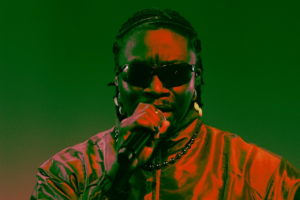
Yet, the transition from sacred to secular wasn’t a simple matter of changing venues. In school, Oxlade initially channeled his musical ambitions through rap, perceiving it as the more “masculine” option. It wasn’t until a pivotal moment in a school assembly, watching another student perform, that he realized the artificial nature of this self-imposed limitation. “I wish this guy knew how good I could sing,” he remembers thinking, a thought that marked the beginning of his emergence as a vocalist.
The spiritual foundation, however, never truly left him. Even as he ventured into secular music, the discipline, the understanding of performance, and the ability to connect with an audience—all skills honed in the church—remained integral to his artistic identity. His grandmother’s initial reservations about his move into secular music eventually gave way to pride, a transition that mirrors the larger journey of many African artists who must navigate the delicate balance between spiritual roots and contemporary expression.
This early chapter in Oxlade’s story illuminates a broader truth about artistic development: sometimes, the most progressive sounds emerge from the most traditional foundations. His journey from church choir to global stages isn’t just a story of musical evolution—it’s a testament to how sacred traditions can inform and enrich contemporary expression, creating something entirely new while honoring what came before.
In the labyrinthine path to musical success, the most compelling stories often begin in the humblest of settings. For Oxlade, this journey was marked not by overnight virality or industry connections, but by a steadfast dedication that saw him transforming from a “studio rat” into one of Nigeria’s most distinctive voices. Until 2020, even as his name began circulating in music circles, he could still be found selling SIM cards and bus tickets—a testament to the long road many artists walk before their breakthrough moment.
The early days of Oxlade’s career paint a vivid picture of artistic perseverance. Too broke to afford recording sessions, he found creative ways to pursue his passion, often serving as a studio errand boy in exchange for the chance to record. “I would use my voice to do the whole beat setup,” he recalls, describing how he would create acapella versions of songs when proper production was out of reach. This resourcefulness, born of necessity, would later inform his unique approach to vocal arrangements and melody.
A pivotal chapter in his story began through an unlikely source: a serenade company that organized flash mobs for marriage proposals. It was here, amid the romantic gestures and choreographed surprises, that Oxlade met Al Genie, the producer who would help craft “Mami Water,” a song that would become one of his early stepping stones. This period illustrated a crucial truth about artistic development: sometimes the most unexpected paths can lead to the most significant breakthroughs.
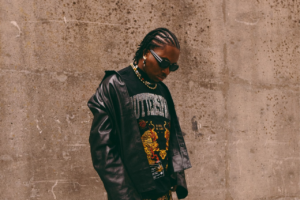
The validation from established artists came gradually, with figures like Davido and Boy DML recognizing his talent. However, it wasn’t until Drake posted his song “Away” that the industry’s attention fully crystallized. Yet even this moment of international recognition didn’t immediately transform his circumstances—Oxlade continued his street hustle until 2020, demonstrating that even in the age of viral moments, true artistic establishment requires time and persistence.
Perhaps most telling is Oxlade’s approach to this gradual rise. “Sometimes I even deny that it’s me,” he reveals, describing how he would deflect recognition in his early days. This wasn’t false modesty but rather a reflection of his deep connection to the journey itself. The streets, he explains, had become such an integral part of his identity that the transition from hustler to celebrated artist required its own evolution.
This chapter of Oxlade’s story offers a masterclass in authentic artistic development. In an era where overnight success stories dominate headlines, his journey reminds us that true artistry often requires a longer, more nuanced path. The years spent perfecting his craft while selling bus tickets weren’t just a prelude to success—they were the foundation upon which his authentic sound was built, proving that sometimes the most meaningful recognition comes not from viral moments, but from the steady accumulation of genuine artistic growth.
In the carefully curated world of Colors Studio, where every performance is meticulously planned down to the lighting and set design, sometimes the most magical moments arise from last-minute instinct. Three days before his scheduled performance, Oxlade made a decision that would alter the trajectory of his career: he switched his song choice from “Away Bambi” to “Ku Lo Sa,” trusting an artistic intuition that defied conventional industry wisdom.
The Colors Studio team, known for their precise approach to visual and audio presentation, had already designed the set around his original song choice. Every element—from the lighting scheme to the color palette—had been carefully selected to complement “Away Bambi.” Yet something in Oxlade’s artistic compass pointed elsewhere. After consulting with his inner circle, including producers Sparks and Ajay, he approached his label with the kind of eleventh-hour change that typically sends ripples of anxiety through any production team.

What followed was a performance that captured the essence of unscripted authenticity. Through the yellow-tinted lenses of his sunglasses, Oxlade never once opened his eyes during the entire performance. This wasn’t a carefully choreographed decision but rather a manifestation of being completely immersed in his element. “I was just in my feels,” he explains, describing a state of pure artistic flow that would resonate with millions of viewers worldwide.
The now-iconic dance moves that accompanied the performance weren’t the result of careful choreography but rather spontaneous expression. In a moment that would be replicated countless times across social media platforms, Oxlade’s natural movements became a cultural phenomenon. The impact was immediate and far-reaching—fans began tattooing his signature “97” design, TikTok created a filter based on his performance, and people even used markers to recreate his look for Halloween costumes.
What makes this viral moment particularly fascinating is its organic nature. In an era where content is often engineered for virality, Oxlade’s Colors Studio performance stands as a testament to the power of authentic artistic expression. The performance’s success wasn’t measured just in views or shares, but in how it resonated across cultural boundaries, inspiring genuine connection and creative response from audiences worldwide.
This moment serves as a masterclass in artistic intuition. While the music industry often operates on careful calculation and strategic planning, Oxlade’s experience demonstrates that sometimes the most powerful connections with audiences come from trusting one’s artistic instincts, even—or especially—when they run counter to established plans. The spontaneous decision to change songs, combined with a performance that prioritized feeling over presentation, created something that no amount of careful planning could have engineered: a genuine moment of artistic truth that resonated across the global stage.
In the polished landscape of contemporary African music, where collaborations often feel manufactured and albums can seem like mere collections of potential singles, Oxlade’s approach to his latest project stands apart with refreshing authenticity. Set for release on September 20th, the album emerges as a carefully curated testament to artistic evolution, where each collaboration springs from genuine connection rather than strategic calculation.
Perhaps most striking is Oxlade’s philosophical approach to the album’s creation. When asked about his favorite track, he responds with an artist’s wisdom: “If I had a favorite song, why am I dropping the others?” This isn’t mere deflection but rather a reflection of his holistic view of artistic creation. He views himself not as a curator of hits but as a vessel through which the music flows, allowing listeners to forge their own connections with each track.
The album’s collaborative spirit reveals itself through unexpected pathways. Dave, the UK rap phenomenon, stands as the only artist with whom Oxlade shared physical studio space during the recording process. This face-to-face interaction during the pandemic era adds a layer of intimacy to their collaboration that transcends the typical digital exchange of verses. The rest of the features, including a stunning contribution from Popcaan, emerged through a more modern process of remote collaboration, yet each maintains the warmth of genuine artistic connection.
One particular collaboration speaks to the album’s emotional depth: a track featuring Oxlade’s father, One Day Call. This intergenerational musical dialogue transforms the album from mere collection of songs into a personal document of growth and reconciliation. It’s a powerful reminder that in an era of carefully calculated features and strategic guest appearances, sometimes the most impactful collaborations come from the heart.
The project’s creation during Oxlade’s two-year world tour adds another layer of complexity to its narrative. Despite the geographical challenges of recording while constantly in motion, each collaboration maintains its integrity through what Oxlade describes as authentic relationships that extend “beyond studio sessions.” These connections manifest in meaningful exchanges about music, life, and artistry, proving that genuine artistic collaboration can transcend physical proximity.
Take, for instance, the track with Popcaan, which initially was conceived with Chronix in mind. When Chronix proved unavailable, taking one of his characteristic “spiritual breaks,” the song found its way to Popcaan through organic industry connections. The result, as Oxlade notes, feels predestined – a perfect marriage of artist and song that could only have emerged through authentic artistic process rather than forced collaboration.
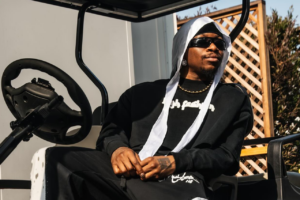
This approach to album creation offers a masterclass in artistic integrity. In an era where albums are often assembled through algorithmic predictions and market research, Oxlade’s project stands as a reminder that the most compelling musical narratives emerge from genuine artistic expression and real human connection. It’s not just a collection of songs, but a document of growth, relationship, and artistic evolution.
In the ever-evolving discourse surrounding African music’s global ascendance, few voices speak with the clarity and conviction of Oxlade on the matter of cultural identity. His perspective on Afrobeats transcends mere musical categorization, instead positioning it as a fundamental expression of African identity—a cultural force that extends far beyond melody and rhythm into the very fabric of daily life.
“Afrobeats is not just music,” Oxlade asserts with characteristic passion. “It’s our DNA, it’s who we are.” This declaration serves not as mere rhetoric but as a framework for understanding the genre’s true scope. In his view, Afrobeats encompasses everything from Twitter banter to dance moves, from pandemic-era cultural moments to the shared experience of eating jollof rice. It’s a holistic cultural expression that defies simple categorization.
Drawing a powerful parallel to hip-hop’s evolution, Oxlade points to how even Kendrick Lamar, with all his lyrical innovation and artistic boundary-pushing, still proudly operates under the banner of hip-hop. This comparison underscores a crucial point about cultural ownership and identity: innovation need not mean abandonment of roots. “We as Nigerians, we as Africans need to know the power of togetherness and the power of identity,” he emphasizes, pushing back against the tendency to splinter into subgenres and alternative classifications.
This stance comes at a crucial moment in African music’s global journey. As the genre gains international recognition, there’s an increasing pressure to modify, to adapt, to perhaps make the sound more palatable for global consumption. Yet Oxlade advocates for a different approach: one that maintains cultural authenticity while embracing natural evolution. “In the race of trying to be different from the rest,” he cautions, “you should know you come from somewhere.”
His perspective offers a masterclass in cultural pride and artistic integrity. While some artists might view their cultural identity as a limitation to transcend, Oxlade sees it as a foundation to build upon. This approach doesn’t restrict innovation but rather enriches it, providing a deep well of cultural experience from which to draw inspiration.
The implications of this viewpoint extend beyond music into questions of cultural preservation and evolution in a globalized world. When Oxlade speaks of Afrobeats as “a way of life,” he’s articulating a vision of cultural expression that refuses to be confined to artistic boundaries. It’s a reminder that the most powerful cultural movements aren’t just about artistic output—they’re about the complete lived experience of a people.
This perspective challenges both artists and audiences to think more deeply about the relationship between cultural identity and artistic expression. In an era where global fusion is often celebrated without question, Oxlade’s stance suggests that true innovation comes not from diluting one’s cultural identity, but from embracing it fully while allowing it to evolve naturally.
In the narrative of artistic development, the distance between struggle and success is often measured not in years but in transformative moments. For Oxlade, this evolution carries a particular poignancy, marked by his steadfast refusal to conform to conventional career trajectories. “All my life I knew I wasn’t going to do a 9-5,” he reflects, a declaration that reads less as youthful rebellion and more as early self-awareness of his artistic calling.
This journey from street hustler to global artist illuminates a rarely discussed aspect of artistic emergence: the period of parallel lives. Until 2020, even as his music gained traction and his name circulated in industry circles, Oxlade continued his street enterprises. This duality wasn’t merely about economic survival; it represented a deeper understanding that authentic artistry requires maintaining connection to one’s roots. “I still deny that it’s me sometimes,” he admits, speaking to the complex psychology of artistic emergence.
Perhaps most telling is his approach to industry recognition and success metrics. When asked about breaking into the top three of African music, Oxlade’s response is both immediate and profound: “I’m not trying to be in any list.” The pregnant pause that follows this statement speaks volumes about his artistic philosophy. “Nobody could do what I could do, so why join the queue?” This isn’t bravado but rather a mature understanding of artistic uniqueness.
His vision for the future reveals an ambitious scope that transcends conventional industry achievements. Rather than focusing on chart positions or streaming numbers, Oxlade dreams of selling out Brazil’s Maracana Stadium—a goal he’s held since childhood. This specific ambition, particularly his strong connection with South American audiences, suggests an artist thinking beyond traditional market pathways and industry expectations.
The transformation extends beyond professional achievements into personal philosophy. His music, which he describes as “a journal for me,” reflects a commitment to authentic expression rather than commercial calculation. This approach has yielded surprising dividends, particularly in South America, where his music has found passionate reception despite language barriers and cultural differences.
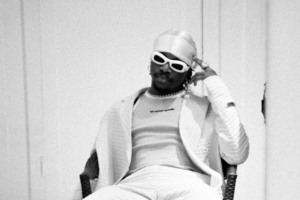
Yet perhaps the most profound aspect of Oxlade’s evolution is his relationship with success itself. Having witnessed the industry’s tendency to embrace “raves of the moment,” he maintains a studied distance from temporary acclaim. His focus remains on creating music that serves as a genuine reflection of his experiences and artistic vision, rather than chasing trends or immediate recognition.
This perspective offers valuable insights for emerging artists navigating their own paths to recognition. It suggests that authentic artistic evolution isn’t just about developing technical skills or building a fanbase, but about maintaining genuine connection to one’s artistic truth while allowing natural growth and transformation. In Oxlade’s journey, we see a blueprint for artistic development that prioritizes authenticity over acceleration, and personal truth over popular trend.
At the intersection of tradition and innovation, Oxlade emerges as a compelling voice not just for Nigerian music, but for the future of African artistic expression on the global stage. His journey—from the spiritual incubator of his grandmother’s church to the digital phenomenon of his Colors Studio performance—offers a blueprint for authentic artistic development in an age often dominated by calculated viral moments and strategic career moves.
What distinguishes Oxlade’s narrative is his unwavering commitment to artistic truth. While many artists speak of authenticity, his actions—from continuing his street hustles until 2020 despite growing recognition, to making last-minute creative decisions that defied industry logic—demonstrate a rare alignment between artistic philosophy and practical choices. This commitment extends beyond personal expression to encompass a broader vision for African music’s global presence.
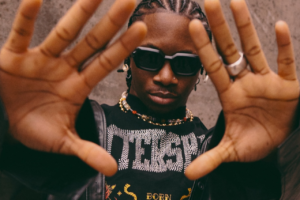
His perspective on Afrobeats as “not just music” but rather a comprehensive cultural expression—encompassing everything from social media discourse to culinary traditions—offers a sophisticated framework for understanding cultural evolution in the digital age. This holistic view suggests that authentic artistic expression isn’t just about creating music, but about honoring and advancing a complete cultural narrative.
The forthcoming album, featuring collaborations with international artists like Dave and Popcaan, alongside a deeply personal track with his father One Day Call, represents this philosophy in action. Each collaboration emerges not from market research or streaming algorithms, but from genuine artistic connection and shared creative vision. This approach suggests a future where African music’s global impact comes not from diluting its cultural essence, but from confidently sharing its full depth and complexity.
Looking ahead, Oxlade’s ambition to sell out Brazil’s Maracana Stadium speaks to a vision that transcends conventional industry metrics. It’s a dream that acknowledges the unique connection between African and South American cultural expressions while pointing toward new pathways for global artistic exchange.
Perhaps most significantly, Oxlade’s journey offers valuable insights for the next generation of African artists navigating the complex dynamics of global recognition while maintaining cultural authenticity. His example suggests that success doesn’t require choosing between cultural roots and global appeal—rather, the most powerful artistic expressions emerge from embracing both while remaining true to one’s unique creative vision.
As African music continues its ascendance on the global stage, Oxlade’s approach—patient, authentic, and deeply rooted in cultural identity while embracing natural evolution—may well prove to be a defining model for sustainable artistic development in the digital age. His story reminds us that in an era of instant global connectivity, the most meaningful cultural contributions still emerge from genuine artistic truth and unwavering commitment to one’s creative vision.


